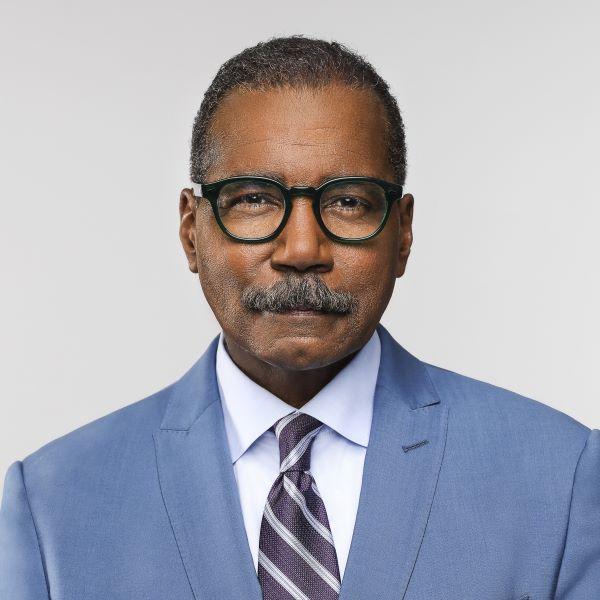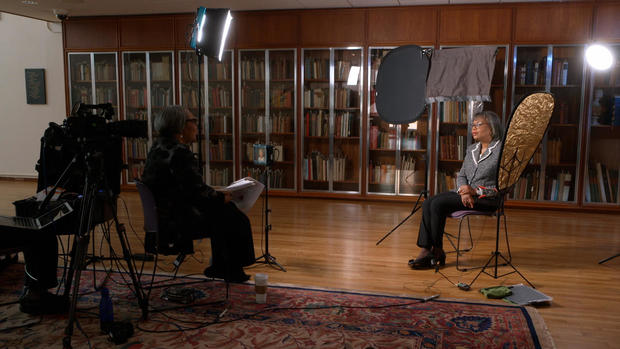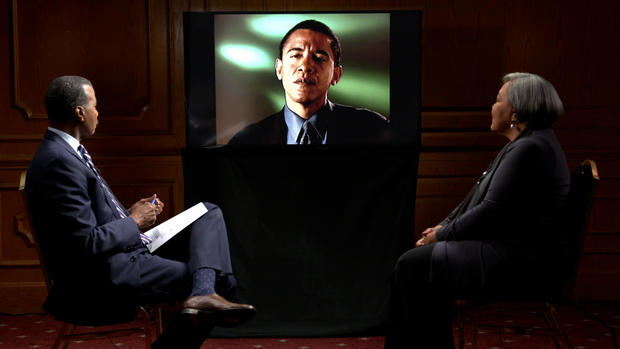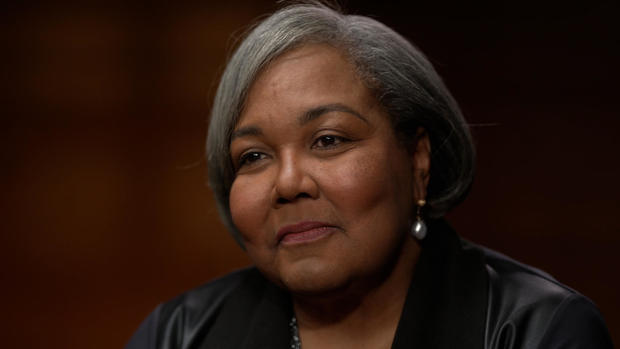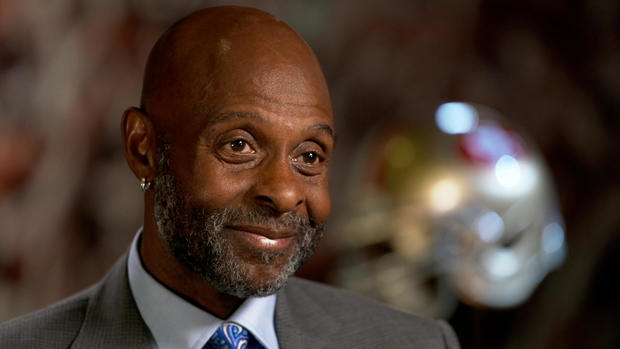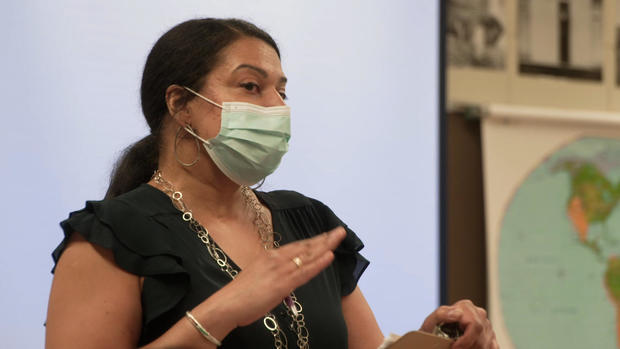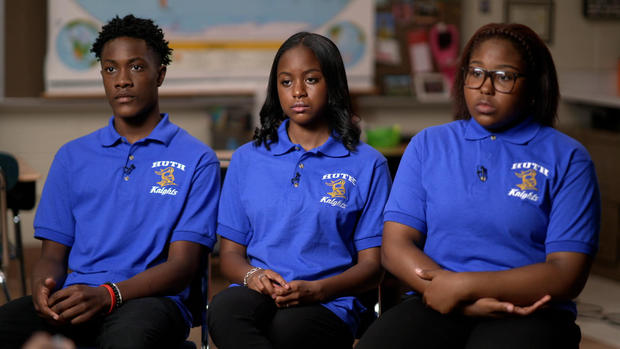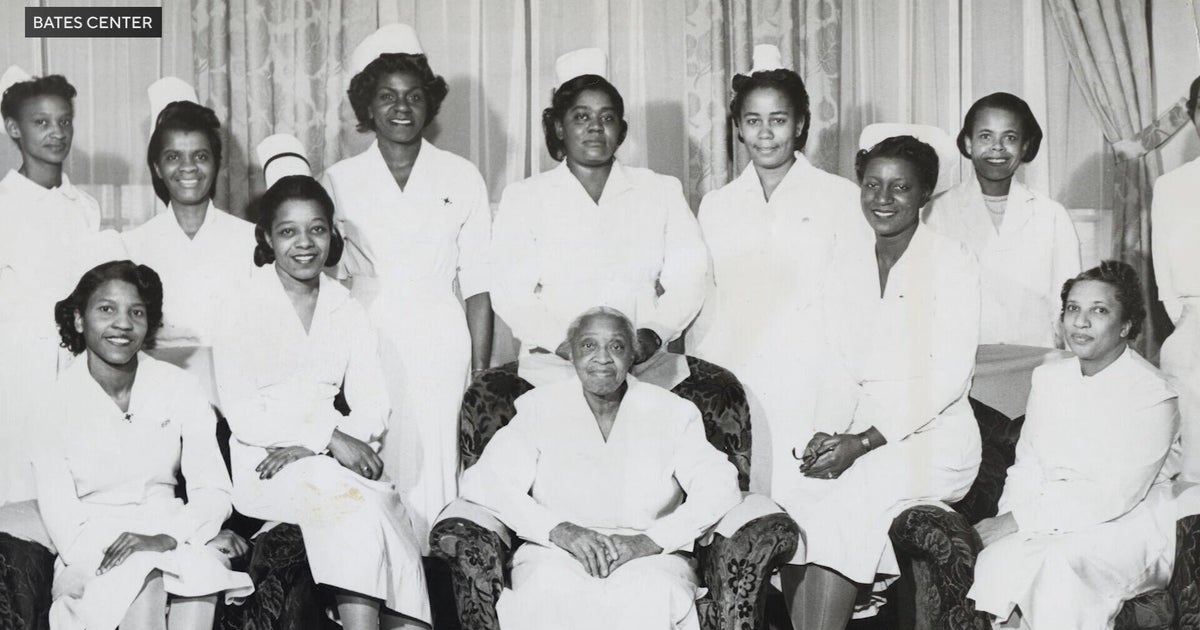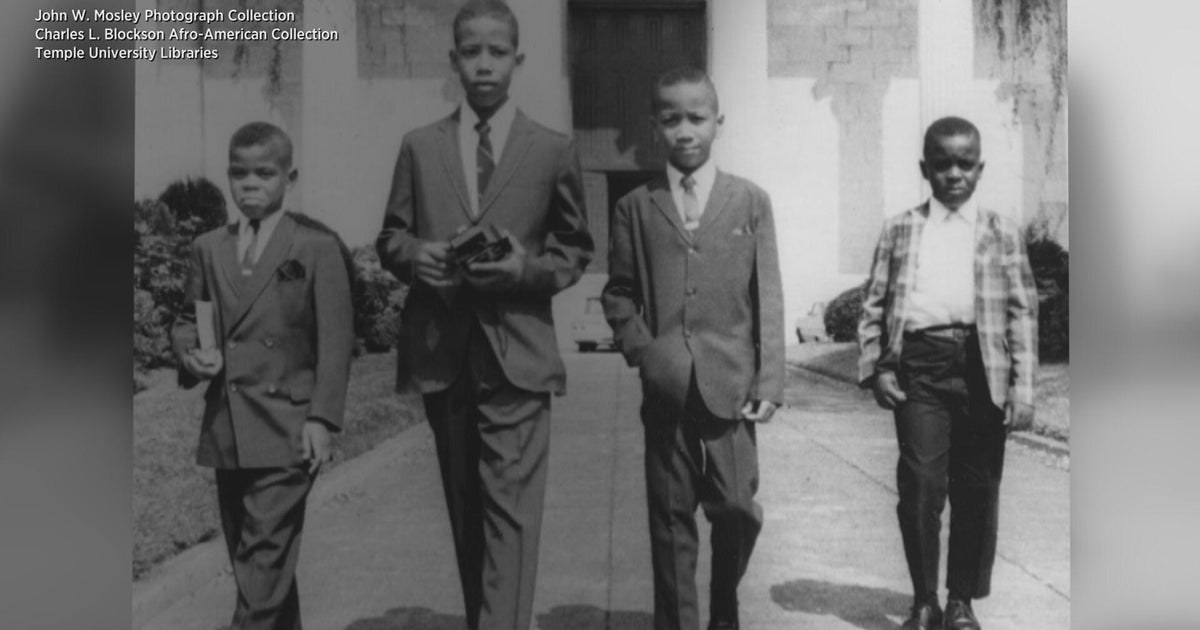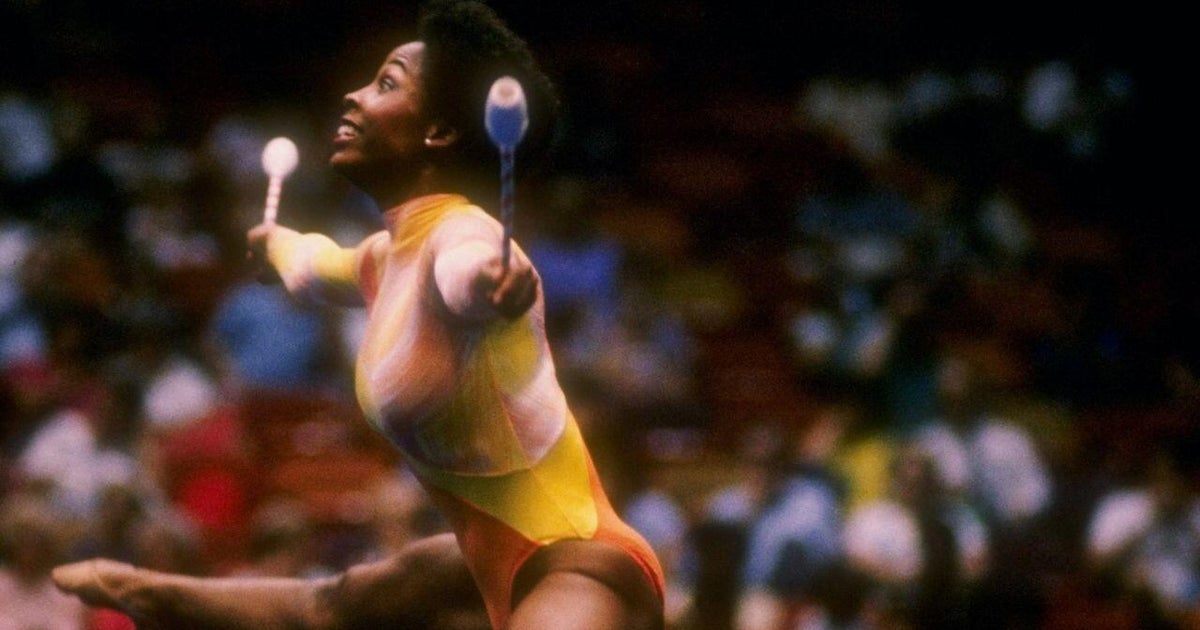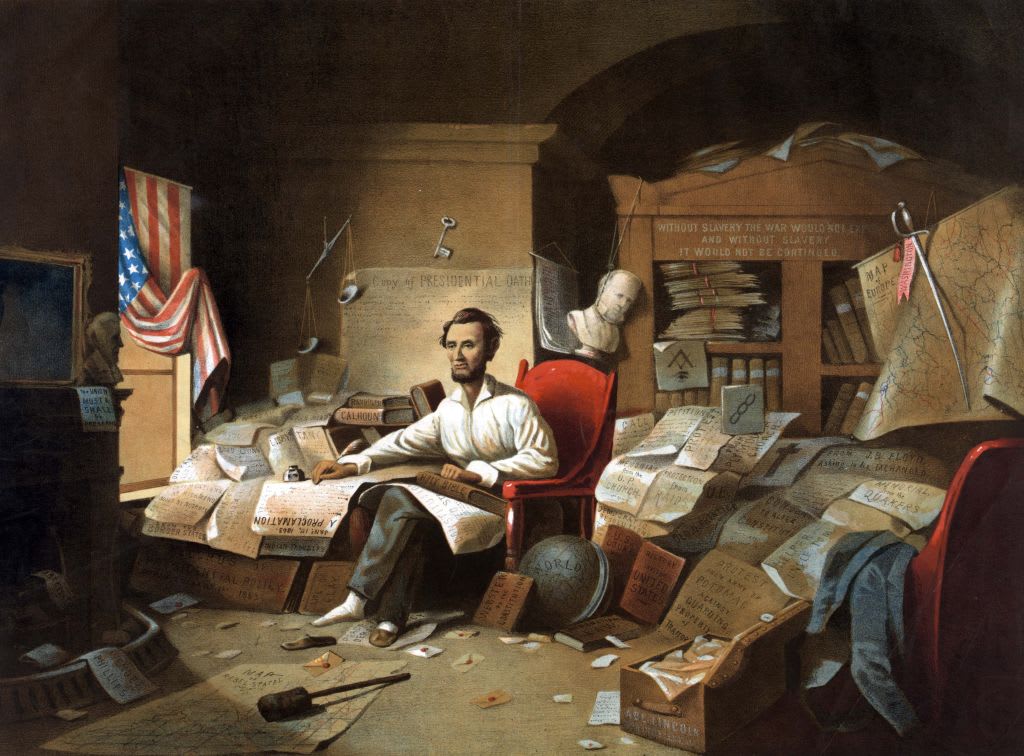The HistoryMakers: Documenting untold stories of African American achievement
At a time when we're having a national discussion about how Black history fits into the American mosaic, we discovered that many stories of Black achievement are slipping away, going unpreserved for future generations. A nonpartisan, nonprofit organization called the HistoryMakers is hoping to change that, by creating an expansive digital archive of first-person accounts. Founder Julieanna Richardson told us she's determined to document the Black experience in America, one story at a time.
Julieanna Richardson: In society today, what is being debated? Who has value and who doesn't? You preserve what has value, you throw away what doesn't. That's why the preservation is so critical.
Julieanna Richardson has been preserving Black American stories for the past two decades. One day, she's interviewing the first Black president of Rutgers University, Jonathan Holloway.
Julieanna Richardson in HistoryMakers interview: What things did you find out about?
Jonathan Holloway in HistoryMakers interview: Well, the sort of the daily racism my siblings dealt with.
Another day, it's Brandeis University professor Anita Hill.
Anita Hill in HistoryMakers interview: In three counties, the census takers actually bothered to list the slaves by name. And that's how I met and found out who my great, great grandparents were.
Hill, known for her testimony against Clarence Thomas, wasn't easy to get.
Julieanna Richardson: It's been a long time coming. I'm really happy to have you here.
Bill Whitaker: Why is it important to have these first-person accounts?
Julieanna Richardson: How else are you going to know what really has happened in the Black community if you don't allow the community to speak for itself?
Bill Whitaker: You've called these America's missing stories.
Julieanna Richardson: They are. They're America's missing stories. And American history won't be complete without them.
Richardson and her small staff in Chicago have created the country's largest collection of African American oral histories. There are more than 3,500 interviews so far. Each one is transcribed then posted online. It's a who's who of Black America. There are luminaries like poet Maya Angelou.
Maya Angelou in HistoryMakers interview: I'm not speaking to Blacks and Blacks alone, or tall women, or fat, thin or sh-- no, I'm to everybody.
And there are rising stars, like a young Barack Obama.
Julieanna Richardson in HistoryMakers interview: Who would you say has influenced you most in your life?
Richardson interviewed him when he was an Illinois state senator.
Barack Obama in HistoryMakers interview: Not just Dr. King or Malcolm X, but Bob Moses, and Fannie Lou Hamer, and-- Rosa Parks.
Julieanna Richardson: Think about this. This is, like, 2001. By 2008 he's president of the United States. It's extraordinary.
Extraordinary is a good way to describe the breadth and depth of the collection.
William Warfield in HistoryMakers interview: You wanna hear somethin' real crazy?
Julieanna Richardson in HistoryMakers interview: Yes.
Not long before he died, bass-baritone William Warfield gave an impromptu performance in German while recounting his Vienna performance of showboat that brought down the house.
William Warfield in HistoryMakers interview: [Sings Old Man River in German]
Julieanna Richardson: Everybody who sees this is sort of enthralled.
Julieanna Richardson says, as a child, all she knew of Black history was that her great grandfather had been enslaved. She grew up in a predominantly White Ohio town and told us when she was 9, she was the only Black student in her class.
Bill Whitaker: You had not been taught anything about Black American history in school—
Julieanna Richardson: Nothing. Unh-uh. But I'm not the only one.
Bill Whitaker: No, I w—I wasn't either.
Julieanna Richardson: It's a common story.
As a sophomore at Brandeis, she traveled to New York's Schomburg Library for a project on the Harlem Renaissance. She had an epiphany while listening to a song.
She thought was about President Harry Truman.
Julieanna Richardson: I learn for the first time that this song is written by a Black songwriting team of Noble Sissle and Eubie Blake in the 1921 production of "Shuffle Along" on Broadway. I mean, it was, like, "Whoa. And I'm listening to the music. (SINGS) "I'm just wild about Harry, Harry's wild about me." And it was, like-- it opened the appetite. And I'm reading, and I'm studying, and I'm listening, and I'm hearing. I'm hearing these things that I had no knowledge of, for the first time.
The spark was lit, but didn't catch fire. Her father had wanted her to be a lawyer. After Harvard Law School, she had a successful career as a corporate lawyer and cable entrepreneur. But she was restless.
Julieanna Richardson: I was in my mid-40s. I didn't have children. You get to a point in your life when you start asking, you know, what is gonna be your leave behind. What is gonna be your legacy? And I wanted to do good in my life.
As she mulled her future, she went to a legal conference in Memphis and heard the Reverend Billy Kyles, who was on the hotel balcony with Dr. Martin Luther King Jr. when he was assassinated. Richardson realized there were lots of important stories like his.
Julieanna Richardson: At that moment the name, "HistoryMakers," came to me. And I came back and I was like, "I know what I'm gonna do. It's called the HistoryMakers, and it's gonna be an archive of Black people."
Bill Whitaker: In the beginning did you have a lot of-- encouragement--
Julieanna Richardson: Well, they-- they-- my friends did an intervention. They literally did an in-- intervention.
With no money, no formal training in oral history or professional archiving, she launched the HistoryMakers in 1999. At first, it wasn't easy to get people to share their intimate stories with a stranger. But she convinced a Tuskegee Airman, Col. Bill Thompson.
Col. Bill Thompson in HistoryMakers interview: We were flying now with White guys.
Julieanna Richardson: He says-- "Have you heard of the Golden Thirteen?" And I said, "No, Col. Thompson, I've never heard of the Golden Thirteen." And he said, "Well, they were the Navy's version of the Tuskegee Airmen." And he said, "Four are left living in this country, and one lives upstairs. And he wants to talk to you also." And it was just at that point that I-- you know, I knew we were at a point of discovering.
By 2012, she had discovered so much, the archive had grown so vast, the collection so significant, the Library of Congress agreed to become its permanent repository. Alongside the only other project of its magnitude - the WPA Slave Narratives, recorded during the Great Depression.
Julieanna Richardson: I go, "Oh my God. The stories of the formerly enslaved and the stories of the progeny of the formerly enslaved are all together."
Bill Whitaker: In the Library of Congress—
Julieanna Richardson: In the Library of Congress. Doesn't get better than that.
Julieanna Richardson is not one to rest on her laurels. When she's not conducting interviews, or researching new subjects - she's even working on me - she's fundraising.
Julieanna Richardson: Every interview costs us $6,000 to process.
When she realized the archive needed more athletes, she persuaded the NFL to donate hundreds of hours of its own interviews with Black players. Last year, she landed Hall of Fame wide receiver Jerry Rice, who couldn't believe he got the call.
Jerry Rice: Because it's almost just like going into the Pro Football Hall of Fame. This is big for me.
Rice showed us the 49ers museum in their home stadium.
Bill Whitaker: So what's with all these footballs?
Jerry Rice: Well, these represent-- all my touchdowns.
Bill Whitaker: All of this?
Jerry Rice: Yeah, all of this right here.
He scored 208 touchdowns over 20 seasons, still an NFL record. He played in four Super Bowls, won three, and snagged a Super Bowl MVP. But Rice said the HistoryMakers wanted to know as much about his upbringing in rural Mississippi.
HistoryMakers Interviewer: Did you have plumbing, indoor plumbing?
Jerry Rice in HistoryMakers interview: No, we didn't. It was outdoor.
He told us poverty fueled his drive for success.
Jerry Rice: We were very poor. Very poor. My father was a bricklayer. And he would take me to work with him during the summer. Very demanding work. I used to be up on this scaffold that was probably about 20 feet in the air. And my-- my brothers down below, they would toss the bricks up. And I would snatch the bricks outta the air. And I always prided myself on, you know, being that s-- really strong link.
Bill Whitaker: What's important about your story for anybody who starts searching for you?
Jerry Rice: With the younger generation, when they see someone, you know, who looks like them and say, "Hey, look, that guy, he made it," that might be that little- that little kick, that little nudge to make them work a little bit harder.
Julieanna Richardson believes stories of struggle and success are powerful motivators for all races, especially young minds. So she's convinced more than 180 colleges and universities to subscribe to HistoryMakers. And she recently rolled out a new curriculum for schools in New York, Atlanta, Chicago, and Charlotte.
Bill Whitaker: Did you know immediately that you wanted to use it in the classroom?
Rachel Davis: Yes, I did.
Last spring, we visited teacher Rachel Davis and her social studies class at O.W. Huth Middle School, near Chicago. The student body is largely African-American and many had lost family members in the pandemic.
Rachel Davis: Sometimes in one household, it was three or four. A grandparent, an aunt, a cousin. And then we had students who were starting to have a lot of anxiety, depression.
Davis saw the perfect salve in the HistoryMakers curriculum "from loss to thriving." She had her students browse the archives and pick HistoryMakers who had overcome adversity.
Bill Whitaker: Who did you end up choosing for your project?
Loren Rounds: I chose The Honorable Blanche M. Manning. She's-- a United States-- district court judge.
Tyler Rush: Lena Williams. She was a sports reporter.
Andre Samuel: Rodney Adkins. He's a part of the IBM industry.
Andre Samuel, Loren Rounds, and Tyler Rush told us they found the record of Black achievement to be richer and more diverse than they had ever imagined or been taught.
Tyler Rush: From maybe kindergarten to sixth grade, we heard the s-- MLK, Rosa Parks--
Andre Samuel: Yeah.
Tyler Rush: --Malcolm X--
Loren Rounds: Every single year, I was like--
Tyler Rush: --the same people.
Andre Samuel: Every year.
Tyler Rush: Madame C.J. Walker. The same people.
Bill Whitaker: Has it changed now that you've met some people who may not have been in the history books?
Loren Rounds: It's a lot-- easier to actually see what we went through, and how we persevered through it, and it just shows how strong we are, really.
Julieanna Richardson: And think about this. What if I had had our archives back when I was nine--
Bill Whitaker: When you were that nine-year-old girl.
Julieanna Richardson: Think about that. I mean, there was actually Black history in my town, just yards from where I was. There was a man named Shackleford who sat at-- with his gun point, daring the White community to tear down his school for Black kids. The fifth president of Liberia was born in Newark, Ohio in eight—
Bill Whitaker: In your hometown--
Julieanna Richardson: --in my hometown, in 1815. I'm thinking there's no Black history, but it was all around me. And that's what the kids-- it's all around them, but they don't know it. They don't touch it, so they can't aspire to be what they don't really see.
Bill Whitaker: But now because of your archives, they can know.
Julieanna Richardson: They can.
Bill Whitaker: That's gotta be rewarding.
Julieanna Richardson: Yes, it is. But our work is not done.
Julieanna Richardson is now on a mission to collect and digitize the papers of HistoryMakers – these belonged to entertainer Eartha Kitt – and she found a willing partner in Ford Foundation President Darren Walker.
Darren Walker: This organization is, indeed, a national treasure. And you, Julieanna, are a national treasure. And so I'm very, very happy to make this pledge of $1 million to your great work.
Julieanna Richardson: I've worked 24/7 for 22 years. And I'm surrounded by these-- such rich stories. Till I take my last breath, I mean, they will always be a part of me. And the little girl-- I mean, I'm now-- a very richly endowed person that no one can tell me that me and my people don't have tremendous value. No one can tell me that, ever.
Produced by Marc Lieberman. Associate producer, Cassidy McDonald. Broadcast associates, Eliza Costas, Natalie Breitkopf and Annabelle Hanflig. Edited by Robert Zimet.
